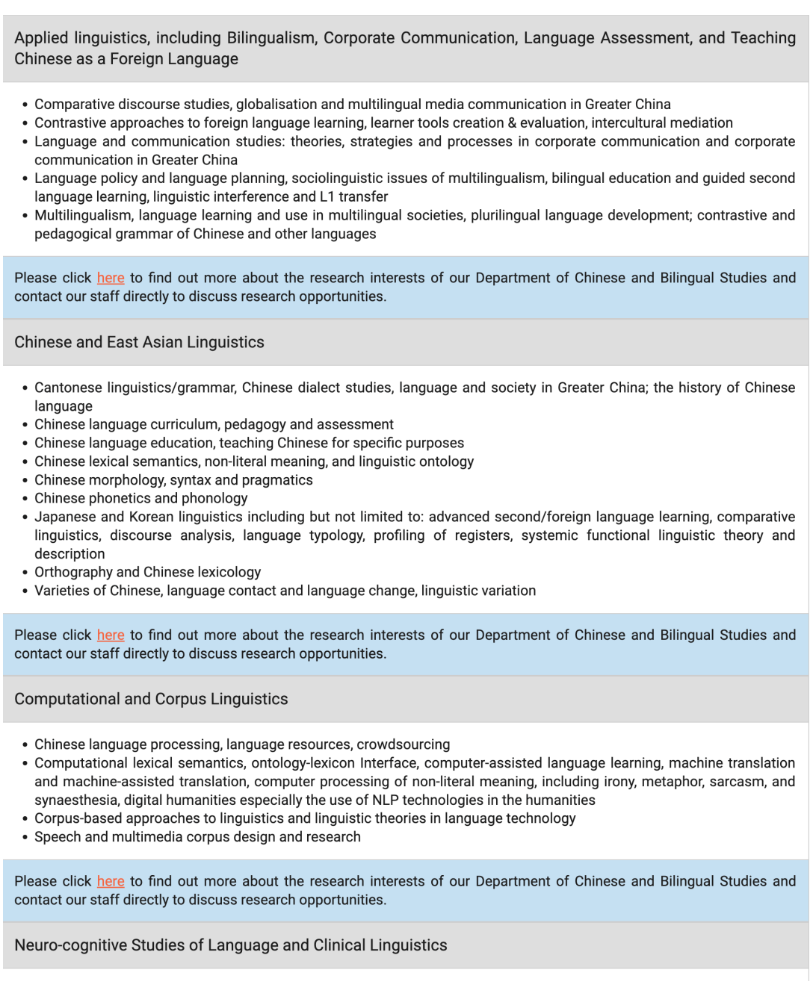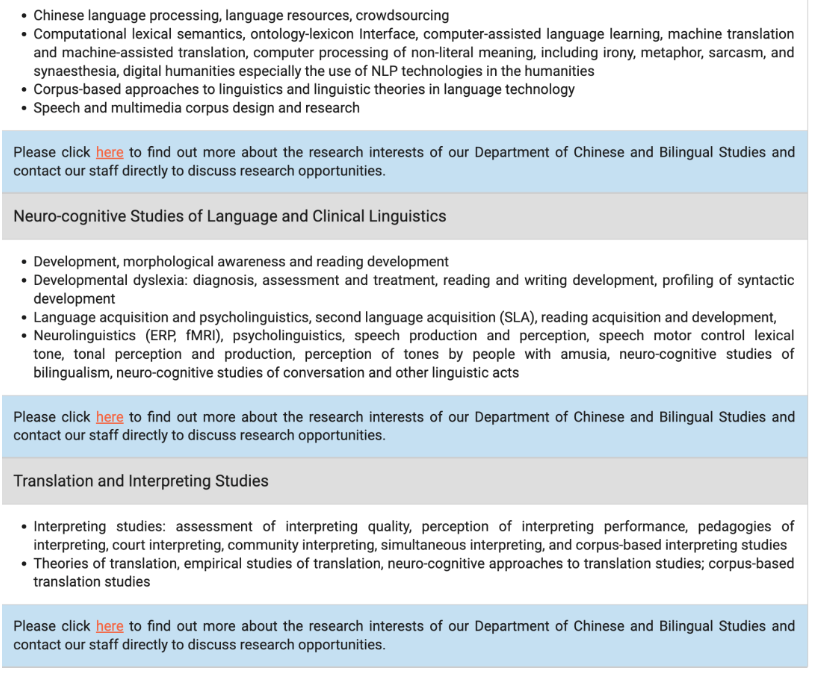1317 阅读 2022-11-07 19:12:24 上传

The Department of Chinese and Bilingual Studies (CBS) has a comprehensive research profile in language sciences and linguistics, with special foci on Chinese, bilingualism and Asian languages. We aim for research results that merit a world-leading profile and the potential to generate knowledge and applications that will benefit mankind in general.
Research Objectives
To understand how language is used in context, in vivo, with special reference to meaning-making by bilingual speakers and writers in Hong Kong and elsewhere in Greater China.
To apply our knowledge to language issues in Hong Kong, especially in relation to Chinese language and bilingual education.
To train professionals and scholars who, upon successful completion of the postgraduate programme at CBS, can go on to play a crucial role in an increasingly competitive world characterised by multilingualism and multiculturalism.
To build a solid scholarly foundation for the effective application of language use in the domains of business and education, such as in the fields of corporate communication, language technology, language education and language testing.

Applied linguistics, with special reference to Bilingualism and Communication, Corporate Communication, Language Assessment and Teaching Chinese as a Foreign Language
Key research areas include bilingual education and second language learning; Chinese language curriculum development; Chinese language education; Chinese for specific purposes; language and society, language development and language use; language policy and planning; multilingualism; plurilingual pedagogies and assessment; and the strategies and processes of corporate communication.
Chinese and East Asian Linguistics
All areas of linguistics with foci on Chinese, Japanese and Korean, including but not limited to comparative linguistics; Cantonese linguistics/grammar; contrastive grammar of Chinese and other languages; dialect studies; discourse analysis; interface, lexical semantics; lexicography; lexicology; morpho-syntax; orthography; pragmatics; phonetics; phonology; syntax; systemic functional linguistics; and language typology.
Computational and Corpus Linguistics
Research topics cover big data research on Chinese language sciences; Chinese language processing; computational modelling of language changes and variations; corpus-based approaches to linguistic theories; digital humanities; language and emotion; language resources and language archives; linguistic ontology; learning technology; linguistic synaesthesia; machine(-assisted) translation; metaphor and other non-literary meanings; ontology-lexicon interface; semantic relations and event detection and representation; and computational and corpus-based approaches for topics in all other research areas.
Neurocognitive Studies of Language and Clinical Linguistics
Research areas range from ageing; amusia; communication disorders; developmental dyslexia; L2 pedagogical grammar; language acquisition; language variations; the creation and evaluation of learner tools; intercultural mediation; neurolinguistics (ERP, fMRI); psycholinguistics; reading (of characters and text); speech production and perception; the bilingual brain; the conversational brain; tonal production and perception; and clinical applications in speech therapy.
Translation and Interpreting Studies
Research areas include corpus-based translation studies, translation pedagogies, process-oriented translation studies (including eye-tracking, key-logging data and think-aloud protocols), literary translation and the history of translation in China. Interpreting Studies focuses on the interplay of language and cognition, using neurophysiological and linguistic tools to study professional and novice interpreters’ cerebral lateralisation. Research topics in this area also cover the assessment of interpreting quality, the perception of interpreting performance, pedagogies of interpreting, court interpreting, community interpreting, simultaneous interpreting and corpus-based interpreting studies.



















